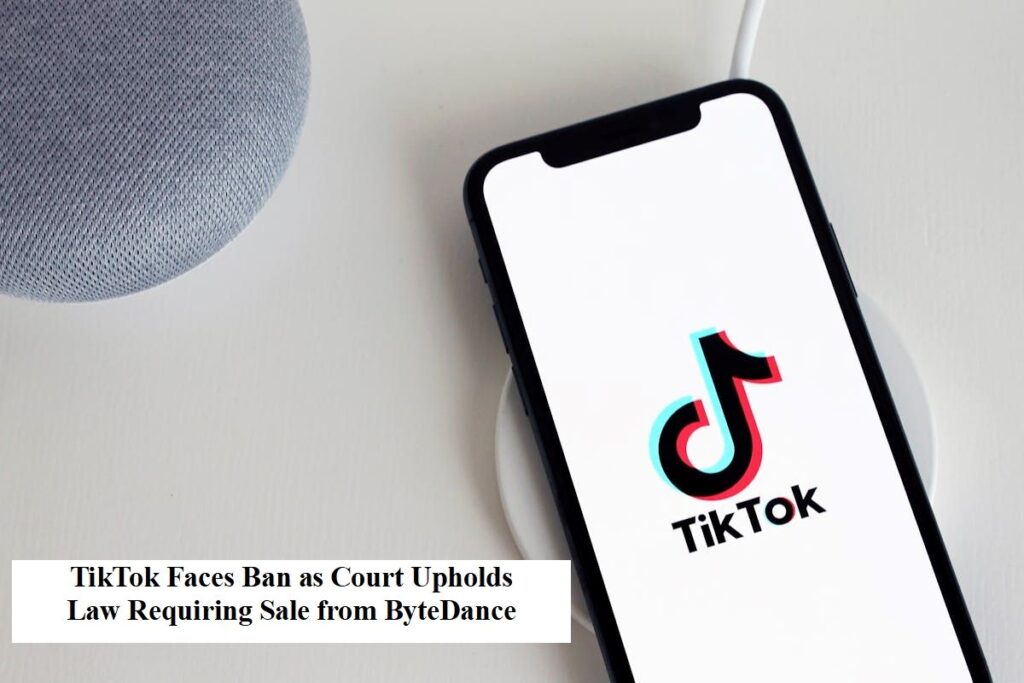TikTok is on the brink of a potential ban in the United States following a decisive ruling by a federal appeals court on Friday. This upheld a law requiring its Chinese parent company, ByteDance, to divert from the app by January 19, 2025.
This ruling represents a significant setback for TikTok, which boasts over 170 million American users who rely on the platform for entertainment and self-expression.
The three-judge panel from the U.S. Court of Appeals for the District of Columbia Circuit unanimously rejected TikTok’s appeal to overturn the law. They dismiss claims that infringe upon First Amendment rights.
The judges concluded that the law is a necessary measure to safeguard national security amid ongoing concerns about TikTok’s ties to the Chinese government.
Senior judge Douglas Ginsburg emphasized that the legislation was designed to mitigate risks posed by foreign adversaries, saying, “The government acted solely to protect that freedom from a foreign adversary nation.”
The law enacted in April mandates that ByteDance must sell TikTok to a non-Chinese entity or face a ban in the U.S. market.
If TikTok fails to comply by the deadline, app stores like Apple and Google will be required to remove it from their platforms.
This legislation has drawn bipartisan support in Congress due to fears that the Chinese Communist Party could exploit user data or manipulate content on the platform.
TikTok announced plans to escalate its legal battle to the Supreme Court, arguing that the law unfairly targets the app and poses an unprecedented threat to free speech.
A spokesperson for TikTok’s spokesman, Micheal Hughes, stated, “The Supreme Court has established a historical record of protecting Americans” right to free speech, and we expect they will do just that on this important constitutional issue.”
He also added, “Outright censorship of American people.”
Attorney General Merrick Garland called the ruling “an important step in blocking the Chinese government from weaponizing TikTok.” However, the next step of the Supreme Court is still unclear; there is no guarantee.
Anupam Chander, a professor of law and technology at Georgetown University, one of the members of the Supreme Court in the TikTok case, said, “The Supreme Court, not wanting to see this app go dark on Jan 19, will freeze the law, and then this gets handed over to the Trump administration and a Trump Department of Justice to figure out what they want to do.”
Chief Judge Sri Srinivasan on Friday said, “Many Americans could lose access to an outlet for expression, a source of community, and even a means of income.”
He added, “Congress judged it necessary to assume that risk given the grave national security threats it perceived.
And because the record reflects that Congress’s decision was considered, consistent with long-standing regulatory practice and devoid of an institutional aim to suppress particular messages or ideas, we are not in a position to set it aside.”
However, the potential loss of TikTok could significantly impact these individuals and reshape the landscape of social media in America.







